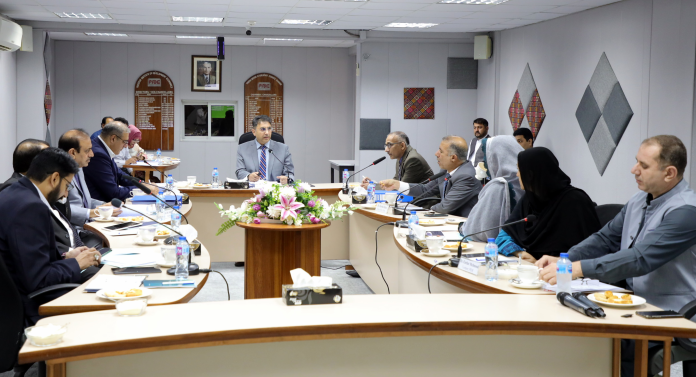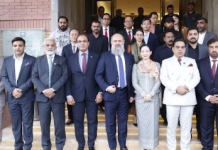ISLAMABAD, MAY 8 (DNA) : In a powerful affirmation of its mission to modernize policy research and impact governance, the Pakistan Institute of Development Economics (PIDE) convened its 32nd Syndicate Meeting, chaired by Vice Chancellor Dr. Nadeem Javaid. The meeting brought together distinguished members, including Mr. Awais Manzur Sumra, Secretary, Ministry of Planning, Development & Special Initiatives, Dr. Jamil Ahmad, Member IT, Higher Education Commission of Pakistan, and senior officials from PIDE.
With the spirit of transformation at its core, the Syndicate endorsed a wide-ranging set of reforms aimed at positioning PIDE as a globally connected, impact-driven think tank aligned with Pakistan’s evolving development needs.
At the heart of the deliberations was the approval of PIDE’s 5-Year Strategic Plan, a visionary roadmap anchored in nine high-impact initiatives. These span academic modernization, cutting-edge research, inclusive growth, digital transformation, and global partnerships—marking the beginning of a bold new chapter for the institute.
In a move to deepen its policy relevance, the Syndicate approved the establishment of eight specialized research centers in areas critical to Pakistan’s future—trade, digital economy, energy, agriculture, behavioral insights, and sustainability. These centers will serve as knowledge engines, connecting rigorous research to real-world policy challenges.
The Syndicate further greenlit the launch of an Executive Development Centre (EDC) to equip leaders and policy professionals with evidence-backed tools, and a pioneering PhD Work-Study Program, which will embed scholars within ministries and industries—bridging the gap between theory and practice.
In a significant development, the Syndicate also endorsed institutional governance reforms—including an incentive-based performance framework, a structured remote work policy, and the much-anticipated campus expansion through the allotment of 17.55 acres in Islamabad’s H-11/2 sector. This will pave the way for a world-class academic and policy innovation hub.
“PIDE is no longer just a research institute. It is evolving into a national resource—where ideas shape policy and innovation drives change,” said Dr. Nadeem Javaid, Vice Chancellor, PIDE.
As PIDE sets its sights on the future, this Syndicate meeting marks a pivotal moment—signaling a renewed commitment to make research more relevant, policy more responsive, and Pakistan more resilient.

















